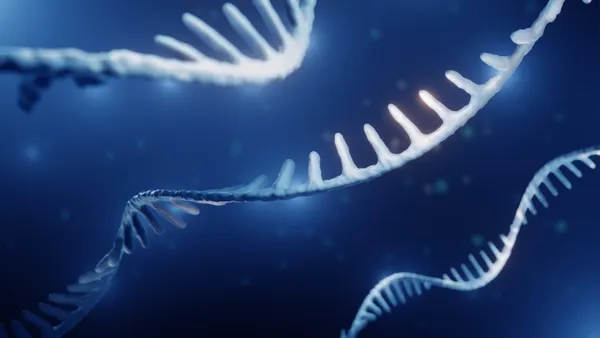Today, a brief rundown of news involving Kriya Therapeutics and Odyssey Therapeutics, as well as updates from Amgen, Regeneron and Merck & Co. that you may have missed.
Kriya Therapeutics raised $320 million in a Series D round that ranks as one of the biopharmaceutical sector’s largest private financings this year. The funding, co-led by Patient Square Capital and Premji Invest, will support clinical testing of gene therapies Kriya is developing for chronic conditions such as geographic atrophy, Type 1 diabetes and metabolic dysfunction-associated steatohepatitis. Kriya is run by Shankar Ramaswamy, the brother of former presidential hopeful Vivek Ramaswamy. It’s now raised more than $900 million since its inception in 2019.
Three months after withdrawing an initial public offering, immune drug developer Odyssey Therapeutics has secured new funding from the private markets. The $213 million Series D announced Wednesday involved all of Odyssey’s existing investors as well as a half dozen other firms, among them Dimension Capital and Jeito Capital. Led by serial biotech entrepreneur Gary Glick, Odyssey is advancing targeted medicines for multiple autoimmune diseases, led by an inflammatory bowel disease drug in mid-stage testing.
Shannon Turley has left Genentech to join Amgen, where she’ll oversee the company's oncology and immunology work as vice president of research and co-head of research biology. Saptarsi Haldar will broaden his existing role to become Amgen's other research biology co-leader, where he’ll run the firm’s cardiometabolic and rare disease research, a spokesperson told BioPharma Dive in an email. The moves are part of Amgen’s plans to revamp research under R&D chief Jay Bradner and top scientist Howard Chang, who came to Amgen in 2023 and 2024, respectively.
Shares of Dianthus Therapeutics have climbed about 50% since the release on Monday of Phase 2 data supporting a drug it’s developing for generalized myasthenia gravis. The results showed treatment with two different dose levels of Dianthus’ drug, claseprubart, led to statistically significant and “clinically meaningful” improvements on an assessment of patient symptoms after 13 weeks. The findings position Dianthus as “a contender” in the large and growing market for myasthenia gravis drugs, while “derisking” studies in other conditions, Stifel analyst Alex Thompson wrote in a note to investors. Dianthus quickly capitalized by raising $251 million in a stock offering on Tuesday.
About half of the participants in a Phase 2 study in extensive-stage small cell lung cancer responded to an experimental antibody-drug conjugate co-developed by Merck & Co. and Daiichi Sankyo. The results, presented at the World Conference on Lung Cancer, will support ongoing discussions with global health regulators regarding an approval in previously treated patients with the disease, the companies said Sunday. Merck and Daiichi have been developing the drug, ifinatamab deruxtecan, as part of a wide-ranging ADC alliance. The “strong” study findings could support both an accelerated approval and “significant first-to-market commercial advantage” over other emerging ADCs carrying similar tumor-killing payloads, wrote Leerink Partners analyst Daina Graybosch.
















